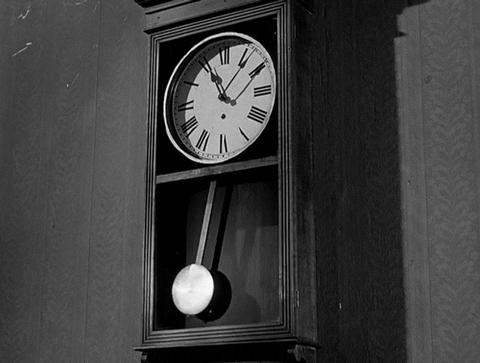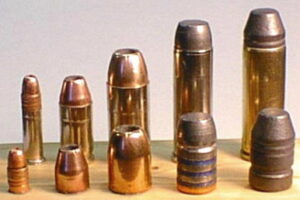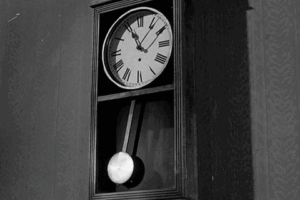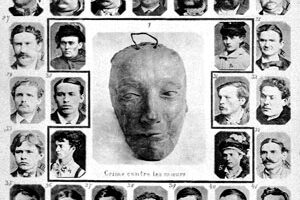Here is another Seven Minute Mystery. These are quick mystery scenarios designed to exercise your cranium juices. No Google. No Internet search. No Wikipedia. Just you and your cranium. Give yourself only seven minutes to read each one and solve it. The answer will be in a future post.
Tick tock . . . the clock is ticking . . .
A doorbell pressed by Inspector Neidermeyer interrupted Dr. Wells’s daily afternoon nap.
“I’m on my way to Rye,” Neidermeyer explained when Dr. Wells groggily answered the door. “Gerald McCourt, the writer, has been murdered. The Rye police chief requested assistance from the Royston PD. Come along if you’d like.”
“There hasn’t been a murder in Rye in years,” remarked Dr. Wells as he entered Inspector Neidermeyer’s unmarked detective’s car. “Sorry to be so bleary. Today’s the 23rd, right? I was up most of the night studying some downloaded manuscript notes of Jacques Futrelle, the mystery writer who created The Thinking Machine and went down with the Titanic.”
“This case should interest a literary type like you,” said Neidermeyer. “You’ve heard of McCourt?”
“Oh, yes. A prolific novelist, and very reclusive. Hasn’t appeared in public in many years, though he grants occasional profile interviews. He’s very compulsive in his habits. When drafting a manuscript, he works from eight a.m. until noon and from ten to two at night, every day but Sunday, banging out two pages an hour on a manual typewriter.”
“Not a computer?” Neidermeyer arched his sandy eyebrows.
Dr. Wells shook his head. “He’s – was – in his mid-seventies, and never changed his methods.”
McCourt’s body was being removed from his study when Neidermeyer and Dr. Wells arrived. Sunlight streamed through the only window onto the book-lined walls. Several dusty books were on the cluttered typing table. Page 250 was still in the typewriter, and a pile of manuscript lay beside it.
“McCourt was sitting at his typewriter,” Sergeant Hatch reported to Inspector Neidermeyer. “Doc Pillsbury found a hypodermic puncture mark on the back of his neck. He says it was definitely poison, but won’t know which until after the autopsy and a toxicology test.”
“Time of death?” asked Neidermeyer.
“Doc can’t tell yet,” replied Hatch. “Some poisons affect the deterioration of the body. It could have been last night or this morning. The housekeeper phoned in at eleven this morning. She, McCourt, and McCourt’s daughter are the only ones to have been in the house recently. The house is kept locked up tight, and the locks show no sign of tampering.”
“Where are the housekeeper and the daughter now?”
“In the kitchen, sir.”
At the kitchen table Neidermeyer and Dr. Wells found Ann McCourt Kitchens and Hildegard Conti. Kitchens, the writer’s daughter, was in her mid-thirties, tall and thin, with long brown hair. The housekeeper, Conti, was in her early sixties. She wore her graying hair in a bun over a wrinkled, freckled face.
“I work in New York as a playwright, inspector,” said Kitchens. “I’ve been visiting Daddy for almost two weeks. I last saw him at ten this morning, when I looked in on him in his study to say hi and tell him I was going into town. I met an old friend of mine, Mary Anderson, at the Home Plate Diner for a late breakfast. We were there until about noon. When I returned, the police were here.”
“I understand you found Mr. McCourt, Ms. Conti,” said Inspector Neidermeyer.
“Yes, sir,” Conti replied. “I had breakfast in here as usual and then cleaned up the dishes and dusted the living room. Mr. McCourt doesn’t eat breakfast, so I don’t see him until I bring him tea in the study at eleven. When I did today, I found him slumped at the typewriter. I screamed, dropped the tea tray, and phoned 911.”
“Did you hear Mr. McCourt typing earlier?” asked Dr. Wells.
“I never do, sir. He types quietly and keeps the door closed, and my hearing is only so-so.”
“Did you see Ms. Kitchens leave this morning?” asked Neidermeyer.
“Yes, sir, a little after ten.”
Neidermeyer thanked them, and he and Dr. Wells returned to the study.
“They spoke to Hatch earlier,” said Neidermeyer, “and he’s made some inquiries. The housekeeper has been here over twenty years. The daughter did arrive a couple of weeks ago for a visit. She’s divorced. McCourt had been working on a new manuscript since the Monday the 5th, so he might have been working in the study both last night and this morning. Mary Anderson confirms her late breakfast with the daughter.”
“You’re right, Greg, it’s an interesting case,” said Dr. Wells, smiling.
“There’s a particularly logical twist to it. If you’d like, I can tell you when McCourt was murdered and point out the murderer right now.”
QUESTION: Who murdered Gerald McCourt?




